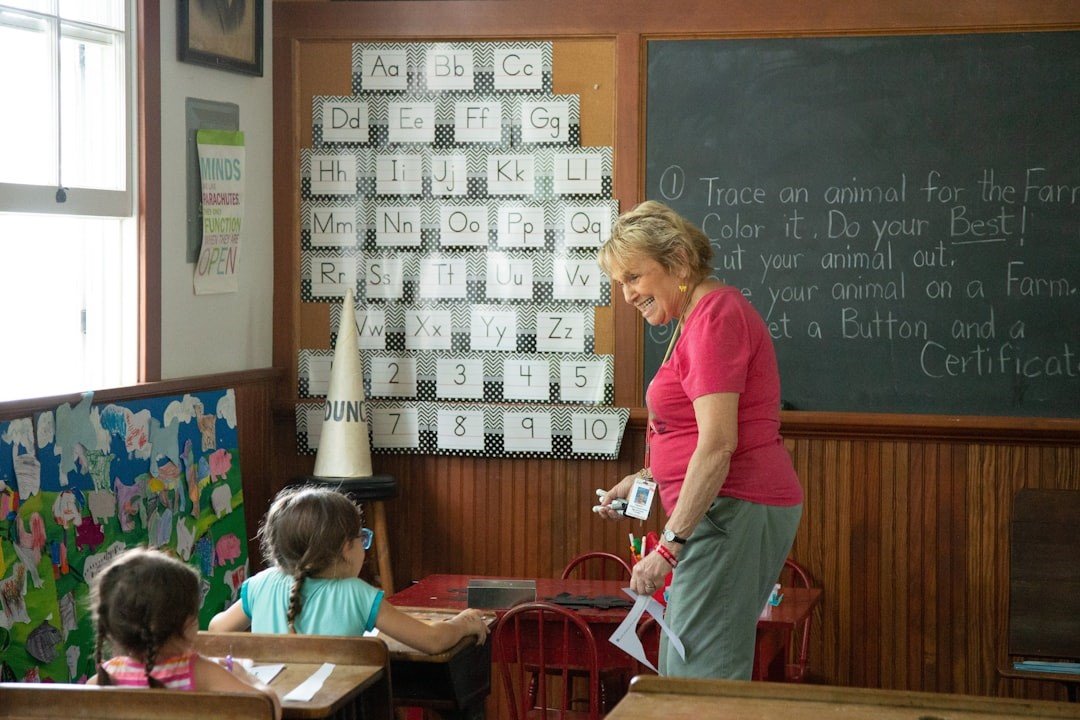Stop Calling Your Child “Advanced” – Why This Label Could Damage Their Future
Is your “gifted” child actually heading for a mental health crisis?
Here’s a shocking truth: 90% of children meet developmental milestones ahead of schedule, yet parents everywhere are convinced their child is uniquely “advanced.” If you’re one of these parents, you might be setting your child up for anxiety, depression, and burnout later in life.
Research shows that adults who were labeled “gifted” as children report significantly higher rates of mental health issues. The very label you think will help your child succeed could be the reason they struggle as adults.
But what if there’s a better way to raise resilient, confident children who actually thrive?
Why Your “Advanced” Child Isn’t Special (And That’s Actually Good News)
You’ve probably heard it at every playgroup: “My Tommy is so advanced – he’s reading at three!” or “Emma is gifted – she talks like a five-year-old!”
Here’s what you need to know about developmental milestones. They’re designed as safety nets, not achievement markers. When experts say “children should walk by 18 months,” they mean this is the point where we check if a child needs help. Most children walk much earlier.
The truth is startling:
- Milestones represent what 90% of children accomplish by that age
- Your child hitting milestones “early” likely means they’re developing normally
- Children excel in different areas at different times – rarely across the board
If everyone’s child is “advanced,” then nobody’s child actually is. Your perfectly normal, wonderfully developing child doesn’t need a special label to be worthy of your pride and attention.
The Hidden Danger of “Gifted” Labels – What Research Reveals
When you constantly tell your child they’re “advanced” or “gifted,” you’re actually creating a psychological trap.
Here’s how it works:
Fixed Mindset Development: Children begin believing their abilities are set in stone. They think, “I’m smart because I’m naturally gifted,” not “I’m learning because I’m working hard.”
Challenge Avoidance: Because everything comes easily, gifted children never learn to struggle. When they finally encounter difficulty, they don’t know how to persist.
Mental Health Crisis: Studies show that children labeled as “gifted” experience higher rates of:
- Anxiety disorders
- Depression
- Academic burnout
- Perfectionism-related stress
One parent shared: “My ‘gifted’ daughter had a complete breakdown in high school when she encountered her first real challenge. She’d never learned that struggling was normal.”
What Your Child Actually Needs Instead of Labels
Stop focusing on whether your child is “advanced.” Start building these crucial life skills instead:
Self-Regulation – Your Child’s Emotional Thermostat
Self-regulation isn’t about controlling behavior – it’s about helping your child manage their internal emotional state. Think of it like a thermostat that automatically adjusts to maintain comfort.
When your child melts down, they’re not being defiant. They’re dysregulated and need your help to find balance again.
Key signs your child needs regulation support:
- Extreme mood swings
- Difficulty with transitions
- Trouble sitting still or paying attention
- Arguing or seeming “defiant”
- Violence or hurtful words when angry
How to Build Real Resilience (Not Fake Confidence)
Your child doesn’t need you to tell them they’re special. They need you to help them become capable.
Create Safe Risks Daily Instead of protecting your child from every challenge, create opportunities for them to face manageable difficulties. This builds genuine confidence.
Validate Emotions, Not Intelligence Replace “You’re so smart!” with “I can see you’re frustrated. That’s a normal feeling when something is hard.”
Focus on Process, Not Results
- Don’t say: “You’re a natural at math!”
- Do say: “I noticed how you kept trying different strategies until you solved it.”
Build Their Emotional Vocabulary Help your child name what they’re feeling. “It looks like you’re disappointed that didn’t work out. Disappointment is tough to handle.”
The Power of Boundaries – Why Your Child Needs You to Be the Parent
Many parents today are afraid to set limits because they want to be their child’s friend. This creates anxious, insecure children who feel unsafe.
Your child needs you to:
- Set clear, consistent boundaries
- Follow through calmly when limits are tested
- Make the big decisions while giving age-appropriate choices
- Stay calm when they’re dysregulated
Think of boundaries like guardrails on a mountain road. They don’t restrict freedom – they create safety so your child can explore confidently.
Teaching Self-Advocacy Without Creating Entitled Behavior
You want your child to speak up for themselves, but you don’t want to raise a demanding, entitled person.
Here’s how to find the balance:
Start with Simple Choices “Would you like to brush your teeth before or after your bath?” This gives control without giving away your authority.
Build Choice-Making Skills Gradually
- Ages 2-4: Two simple options (“Red cup or blue cup?”)
- Ages 5-8: Expanded choices within limits (“What would you like for lunch from these three options?”)
- Ages 9-12: Input on family decisions with final say remaining with parents
Teach Them to Identify Their Needs Help your child understand their own learning style, strengths, and support needs. This builds self-awareness without entitlement.
Stop Helicopter Parenting Before It’s Too Late
Overprotective parenting creates children who can’t handle independence. Research shows helicopter parenting leads to:
- Lower psychological well-being
- Increased depression and anxiety
- Poor problem-solving skills
- Difficulty with relationships
If you recognize these patterns in yourself:
- Constantly warning about potential dangers
- Solving problems your child could handle
- Making decisions your child is capable of making
- Feeling anxious when your child faces any difficulty
Your child needs exposure to manageable challenges, not protection from every discomfort.
The Growth Mindset Game-Changer
The most successful children aren’t the ones labeled “gifted” – they’re the ones who learn to see challenges as opportunities to grow.
How to develop growth mindset:
Praise Effort, Not Ability
- Avoid: “You’re so smart!”
- Try: “I can see how much effort you put into that!”
Reframe Failure as Learning When your child struggles, ask: “What did you learn from this? What might you try differently next time?”
Model Growth Mindset Yourself Let your child see you struggling with new challenges and working through difficulties.
Independent Play – The Secret to Raising Confident Children
Your child doesn’t need constant entertainment or interaction. Independent play builds:
- Imagination and creativity
- Problem-solving skills
- Patience and persistence
- Self-reliance
The key is providing open-ended materials that spark creativity without dictating how to play. Unlike screen time or structured activities, true independent play happens when children can explore, experiment, and create freely.
What makes great independent play materials?
- Simple, versatile pieces that can become anything
- Natural materials that engage multiple senses
- Tools that grow with your child’s development
- Items that encourage building, sorting, and pattern-making
Some parents find success with educational play systems like Spielgaben, which offers wooden blocks and natural materials specifically designed for open-ended exploration. The beauty of quality independent play materials is that they don’t tell your child what to do – they simply provide the tools for discovery.
Set up safe spaces where your child can play alone while you’re nearby. This isn’t neglect – it’s giving them space to develop crucial life skills without constant adult direction or entertainment.
Your Action Plan – Start Today with These Three Steps
You don’t need to overhaul your entire parenting approach overnight. Start with these simple changes:
This Week:
- Stop using “smart,” “gifted,” or “advanced” when praising your child. Instead, notice their effort and process.
- Validate one emotion daily. When your child is upset, say “I can see you’re really frustrated” before trying to solve the problem.
- Create one small challenge. Let your child struggle briefly with something they can eventually manage (opening a package, solving a puzzle, etc.).
This Month: Implement consistent boundaries around one area (bedtime, screen time, or chores). Stay calm and follow through consistently.
This Quarter: Build a “feelings vocabulary” with your child. Make it a daily practice to name emotions – both theirs and yours.
Remember: your child doesn’t need to be exceptional to be wonderful. They need to be resilient, kind, and capable of growth. When you focus on building these qualities instead of chasing labels, you’ll raise a child who can handle whatever life brings.
The goal isn’t perfection – it’s progress. Your child’s future success depends not on being “advanced” today, but on developing the emotional tools to navigate tomorrow’s challenges.
Ready to transform your parenting approach? Start by choosing just one strategy from this article and implementing it today. Your child’s emotional well-being is worth more than any “gifted” label could ever provide.
Build resilience, not just intelligence. Foster growth, not just grades. Raise humans, not just high achievers.













LEAVE A COMMENT